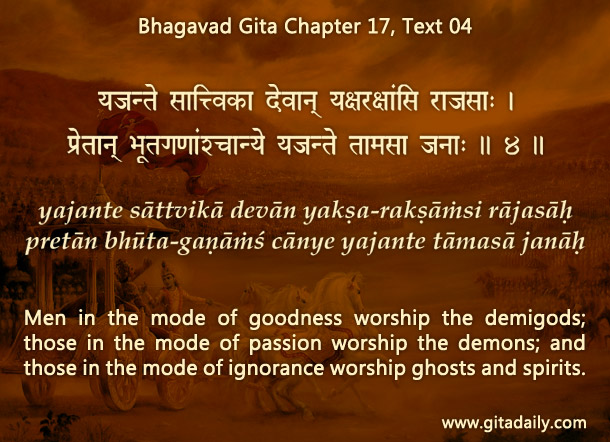We live in a world that cherishes equality. Affirming our innate aspiration, Gita wisdom explains that people themselves are equal in that everybody has a spark of the Divine within them.
Nonetheless, people’s ideas and ideals aren’t necessarily equal. We understand this very easily in the STEM (Science Technology, Engineering, Math) areas. Those who say three plus five is seven aren’t equal to those who say it is eight.
But somehow in the domain of worldviews, we often embrace an uncritical equality. Certainly people have free will to choose what they believe, but that doesn’t make their beliefs true or equal. Even if the truth-claims of worldviews are difficult to evaluate, their functional consequences are evaluable. A worldview that rationalizes the killing of millions by labeling them as agents of the devil is not equal to a worldview that sees all people as sparks of the Divine.
When in the name of egalitarian concepts like secularism or multiculturalism, we presume that all ideas and ideals are equal, then exclusivist or sectarian groups can exploit such naivete. An exclusivist group which considers its religious path to be the only right path will be more intolerant than a path that sees itself as one among several paths to the one ultimate reality. The Bhagavad-gita (17.04) states that even our faith, which is so personal and intimate to us, can be classified based on the modes of material nature. Accordingly, the validity and the value of the faith can be evaluated by its functional characteristics.
By thus giving us a stellar example of subjecting even faith to rational scrutiny, the Gita provides us the resources to simultaneously affirm the equality of all people and evaluate their particular ideas and ideas based on merit.
One-sentence summary:
People are equal, their ideas and ideals aren’t.
Think it over:
- How are people equal?
- How are people’s ideas and ideals not necessarily equal?
- How can we cherish both equality and rationality?
***
17.04: Men in the mode of goodness worship the demigods; those in the mode of passion worship the demons; and those in the mode of ignorance worship ghosts and spirits.
To know more about this verse, please click on the image


Hare Krishna Prabhuji
Thank you for the clarifying my years of doubt/confusion on equality.
I am enjoying your kind generous service and look forward to relishing your your version of nourishing daily writings from the Gita
Dear Jolie, Thanks for your kind words, delighted to know that you find Gita-daily helpful.